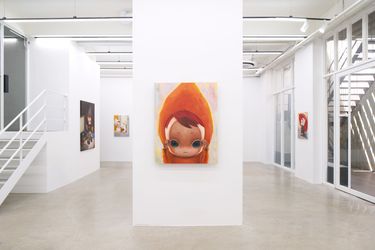****'****Neverland Syndrome'
'Neverland Syndrome' is an evocative term, originating from the utopia in J.M. Barrie's timeless tale of 'Peter Pan' where children never age. It serves as a contemporary extension of the psychological 'Peter Pan Syndrome' but has been reshaped by various factors such as improvements in quality of life due to economic advancement, the proliferation of the internet and social media, and the surge in wellness culture. It captures the essence of individuals who defy age constraints, embrace their unique personalities in both virtual and tangible realms, maintain youthful sensibility, and lead vibrant, energetic lives. This term is particularly pertinent in describing those who appear ageless in modern society or adults who continue to embrace the lifestyle habits of youth. Due to economic stability, younger generations have greater leisure and freedom, allowing them to operate with less constraint from vocational or societal pressures. Moreover, the internet and social media have cultivated a culture that embraces the maintenance of youth into adulthood.
The artist Mane (Oh Sejong, born 1978) spent his childhood during Japan's economic bubble of the 1980s and adolescent years through the rapid cultural exchange and pop culture evolution of Korea in the 1990s. Exposed to the cultural artifacts now termed 'retro' in the current lexicon, Mane's generation absorbed the influence of Japan's 1980s cultural and electronic boom during Korea's 1990s. This era was marked by economic and cultural abundance, fostering countless subcultures even in the absence of the internet. As an adult in the post-internet age, Mane eschews traditional art education, choosing instead to produce characters that represent his love and enjoyment of his culture as a form of self-expression and artistic 'persona.' Beginning in 2007, his characters, initially conceived for commercial drawings, evolved into canvas paintings and eventually into sculptures and objects, garnering critical acclaim at art fairs and design biennales.
The artist's work, embodying a child-like purity and simplicity in both the creation and conceptualisation stages, symbolises the quest for 'pure freedom.' Even as an adult, Mane utilizes his characters to preserve his inner child, conveying messages that echo his desire for pure exploration and the preservation of a youthful spirit. In an academic context, 'Neverland Syndrome' could be further explored as a cultural and social phenomenon reflective of the transitional zeitgeist where the traditional boundaries of age and maturity are increasingly blurred by lifestyle choices and technological influences. Research could delve into its implications for identity formation, societal expectations, and its intersection with consumerism and media representation.
Press release courtesy THEO.
B1F
55-3, Bongeunsa-ro68-gil
Gangnam-gu
Seoul, 06156
South Korea
gallerytheo.com/en
+82 2-556-7290
Tue - Sat, 1 - 7PM
(Closed on Sun, Mon and Holidays)

Exhibition view: MANE, Neverland Syndrome, THEO, Seoul (4 May–8 June 2024). Courtesy THEO.